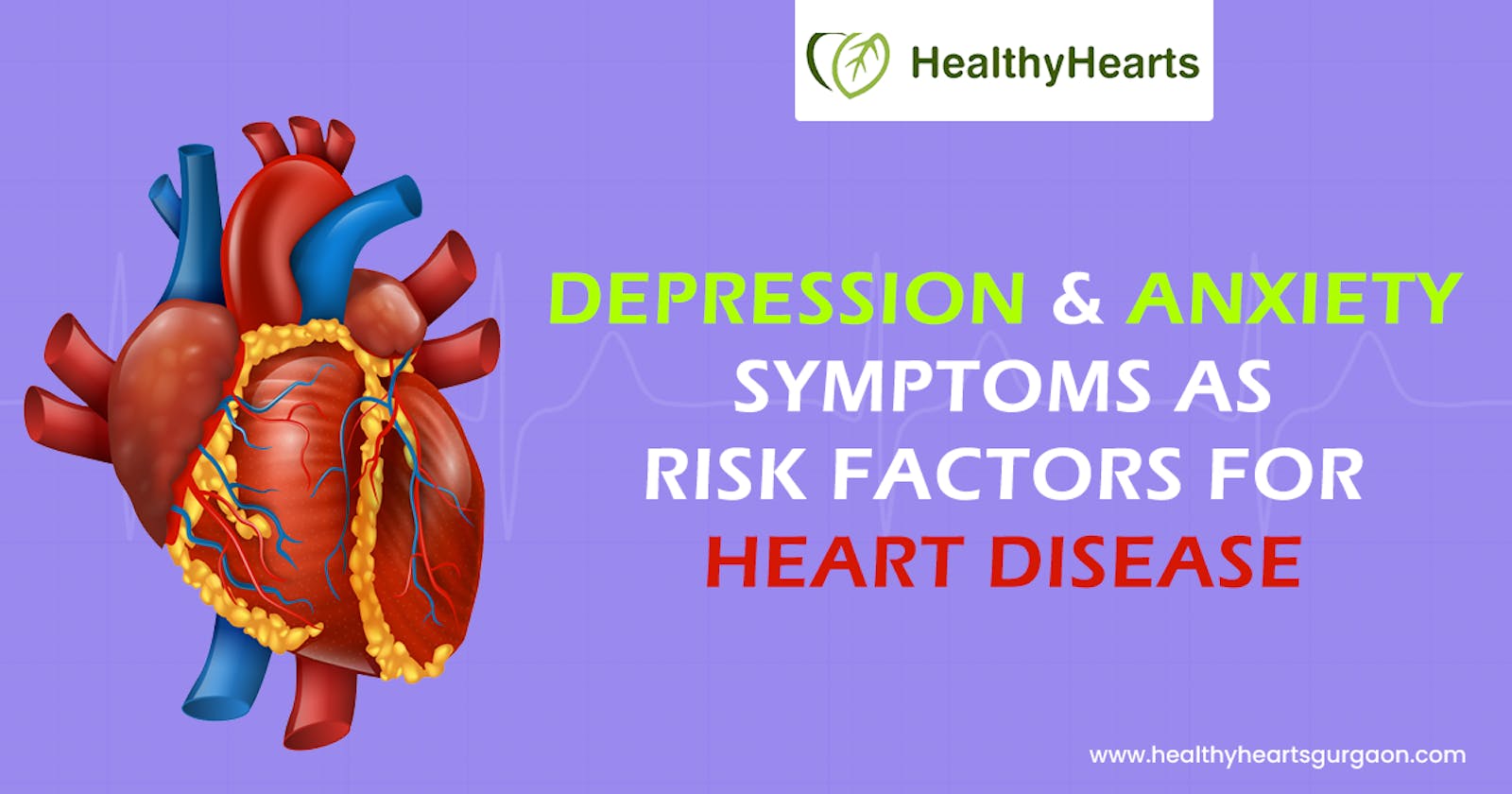It's simple to grab your go-to comfort food or skip a workout when you're feeling bad. Even when you're not feeling well, it's still crucial to consider your heart's health.
People are less likely to make good lifestyle decisions when they are stressed, anxious, or depressed because they may feel overwhelmed. They might smoke more and engage in less physical activity.
Too little or too much sleep, excessive alcohol consumption, and non-compliance with medication instructions. These unhealthy habits can eventually raise your risk of developing heart disease.
Trauma, sadness, anxiety, and stress can produce changes that can have an impact on your health, and not just because you could adopt unhealthy habits. According to research, physical physiology is impacted by mental wellness.
If you want to avoid such situations, then you must take advice from the top cardiologist in Gurgaon and work to achieve a healthy and happy lifestyle.
While depression undoubtedly has an impact on your habits and way of life, it can also directly impair your physical health. It has been linked to mild inflammation. Your arteries may become clogged by this inflammation, which may also increase the release of stress hormones and facilitate blood clotting. So if someone tells you that your depression is all in your head, don't believe them. Your body is affected by depression in real, tangible ways.
In this blog, Dr. Monik Mehta has explained that depression causes heart disease or a heart attack.
Your heart rate and blood pressure increase, your blood flow to the heart is reduced, and your body creates more cortisol, a stress hormone, when you are depressed, anxious, or stressed. Heart disease may eventually result from these impacts. In addition, post-cardiac events such as heart failure, stroke, and heart attack can lead to depression and anxiety.
A person's body responds to anxiety in ways that can put additional strain on their heart. Anxiety's physical side effects can be particularly harmful for people who already have a cardiac illness.
The following heart diseases and cardiac risk factors may be linked to anxiety:
• Rapid heart rate (tachycardia): In extreme circumstances, this can disrupt the regular heartbeat and raise the danger of sudden cardiac arrest.
• Elevated blood pressure: Chronic coronary disease, heart muscle deterioration, and heart failure are possible outcomes.
• Reduced heart rate variability: May increase the risk of death after a heart attack.
Different Types of Anxiety Disorder
There are various types of anxiety disorders. Some of them are as follows:
• Panic disorder: This can be mistaken for a heart attack or be related to a cardiac illness. Dizziness, chest pains, stomach aches, shortness of breath, and a rapid heartbeat are common symptoms of acute anxiety and terror.
• Post-traumatic stress disorder (PTSD): a state that can happen after a terrifying or stunning encounter or a sudden, life-threatening catastrophe such as a violent crime, serious accident, or heart attack. A person with PTSD frequently feels jittery and detached and finds it difficult to deal with anything connected to the event that gave rise to their illness.
• Obsessive-Compulsive Disorder: People with OCD will repeatedly carry out the same behaviours to control their illogical thoughts and fears. For instance, a person who is obsessive about perceived cardiovascular symptoms that have been examined and ruled out by a doctor may spend hours researching or discovering new ones.
Diagnosing and Treating Anxiety
Treatment options for anxiety can range from counselling to medicine or a combination of the two, depending on the length, severity, and kind of the condition. Cognitive-behavioral therapy (CBT), a popular and efficient treatment approach, consists of three major elements:
• Anxiety Control: In order to help the patient focus on the here and now, it is important to prevent them from concentrating too much on uncontrollable future fears. Yoga methods, sensory-concentrating exercises, and relaxation techniques may all be used to manage anxiety.
• Cognitive restructuring: People who suffer from anxiety disorders frequently "catastrophize," or place undue emphasis on the likelihood of catastrophic or apocalyptic occurrences. The goal of cognitive restructuring is to demonstrate that distorting events and situations is not a good thing through patient-therapist interaction.
• Exposure therapy: This method involves repeatedly and gradually exposing the patient to the anxious situation or activity. When the person can successfully manage the anxiety, the desired outcome is attained. Examples include conquering a fear of crossing a bridge, flying cross-country without getting lost, or spending time in a place where an accident or crime occurred.
Ultimately, you have to take care of yourself to break the cycle of feeling down. That could be doing something such as meditating, listening to music, or reading a book. Furthermore, if you believe you require professional advice, you can visit your cardiologist in Gurgaon to receive appropriate advice based on your mental situation and try to overcome them to live a healthy and peaceful life.
To Book an appointment with our Cardiologist
Dr. Monik Mehta (MBBS, MD, DM, FACC)
Interventional Cardiologist, Cardiologist, Cardiac Electrophysiologist
24*7 Helpline No. +91-9873214382
Email: heartcare@healthyheartsgurgaon.com
Website: www.healthyheartsgurgaon.com
